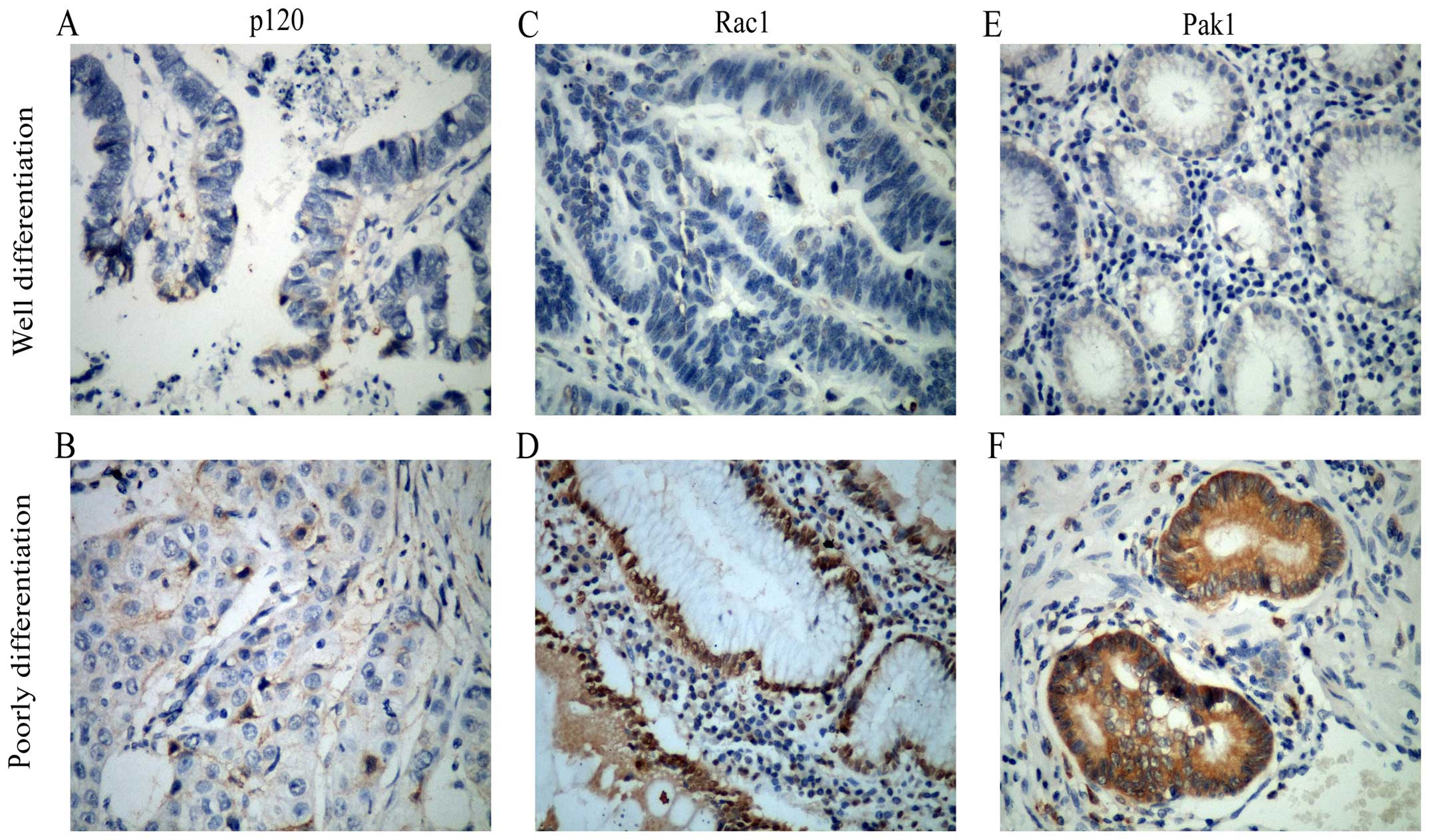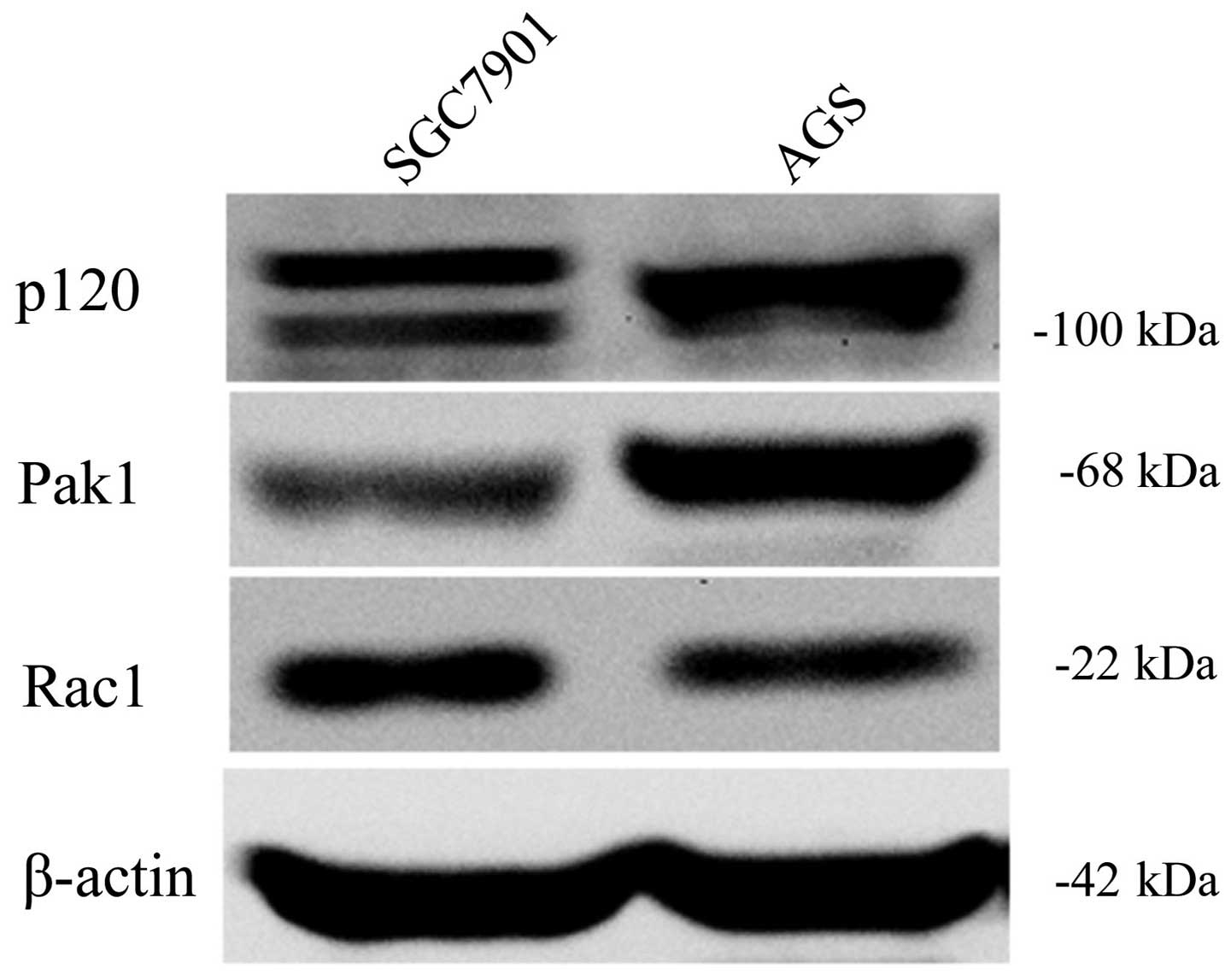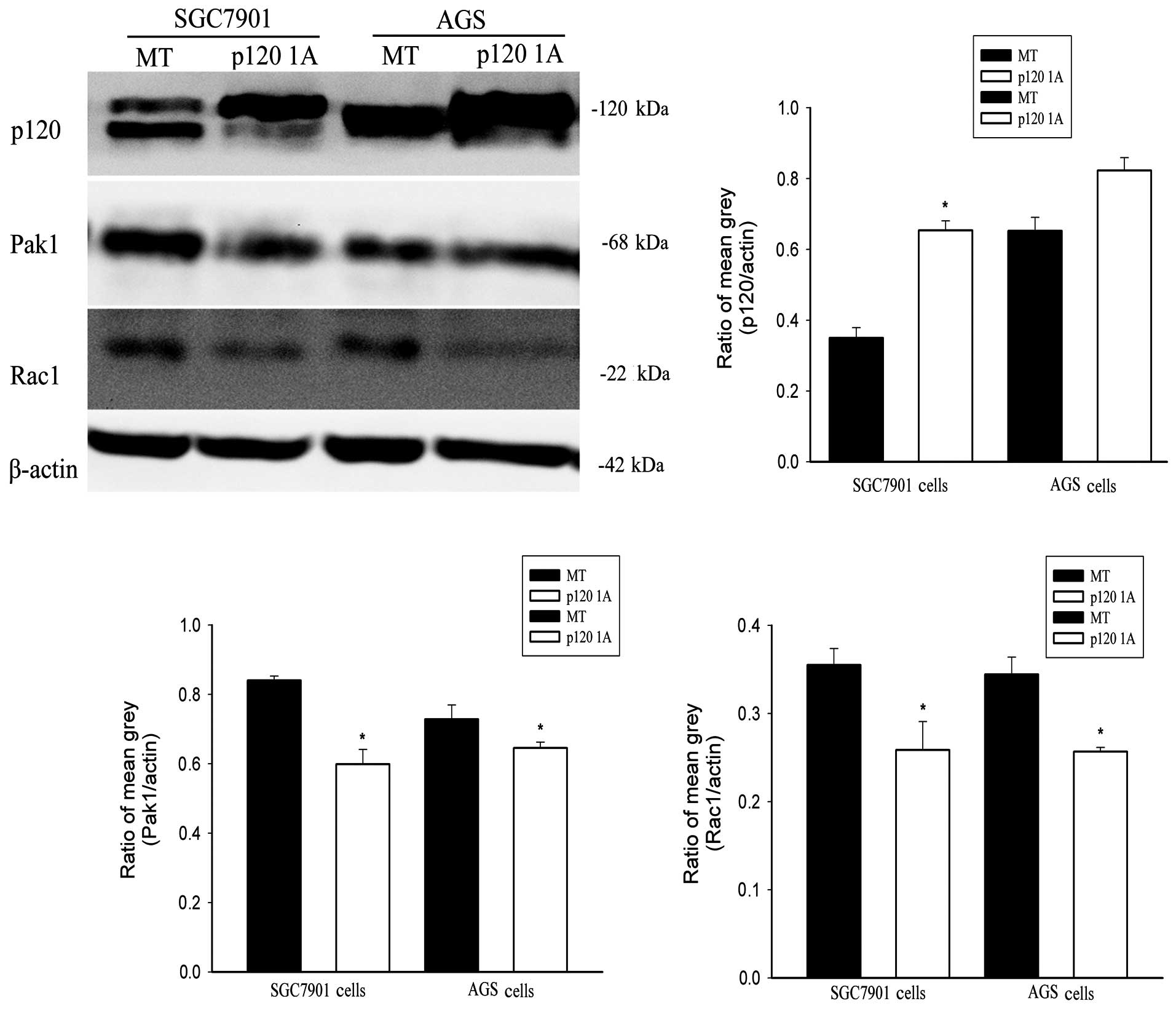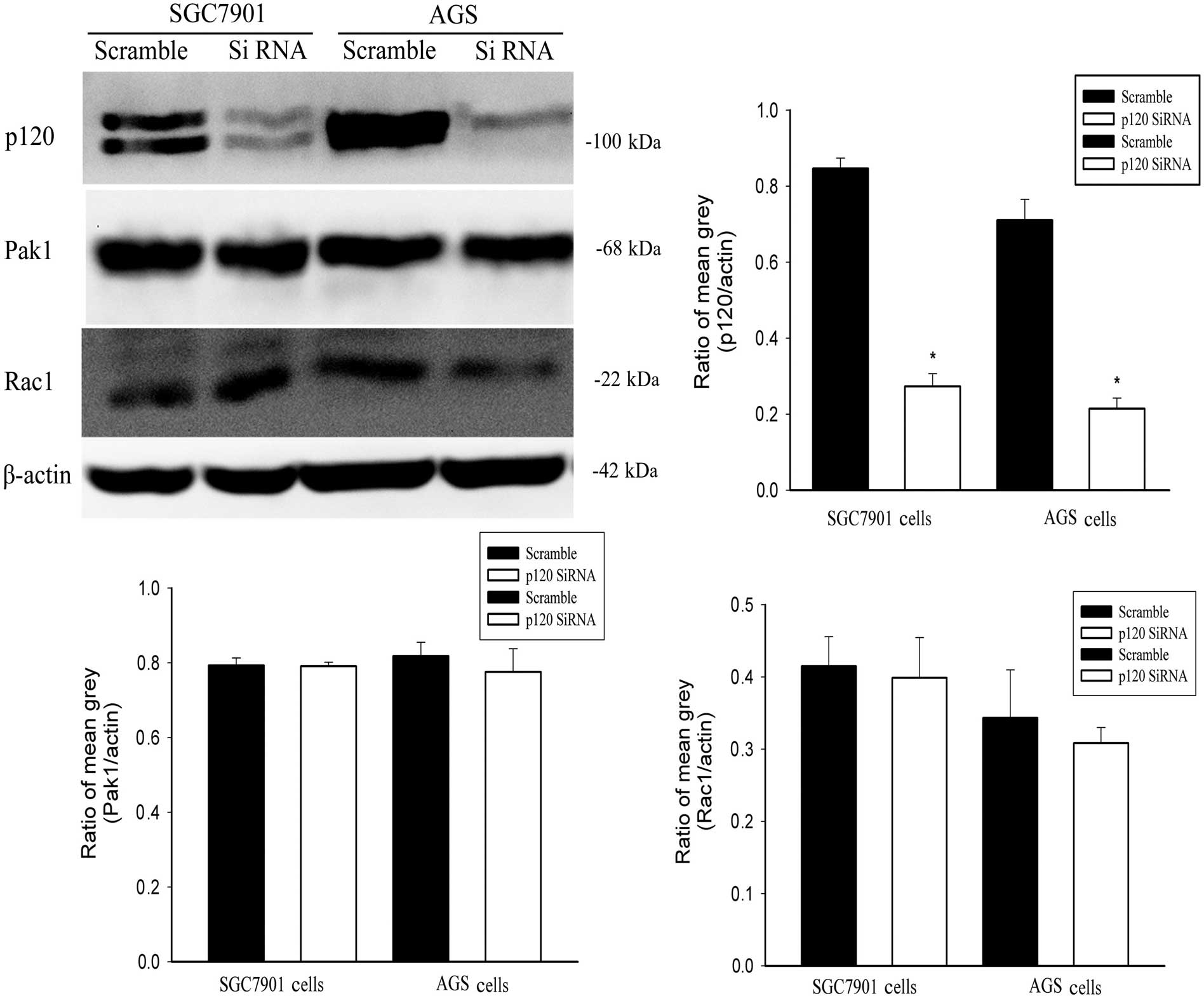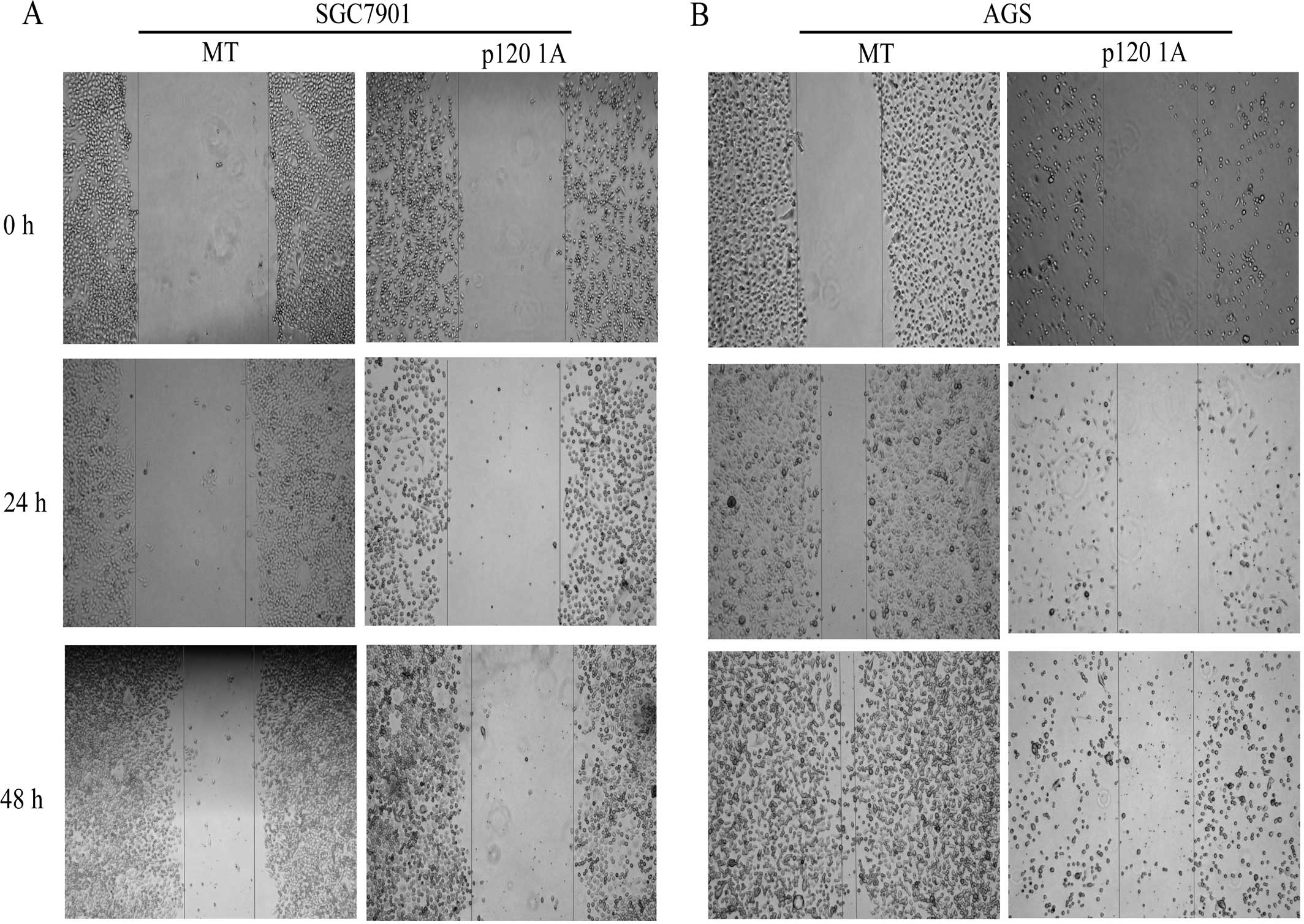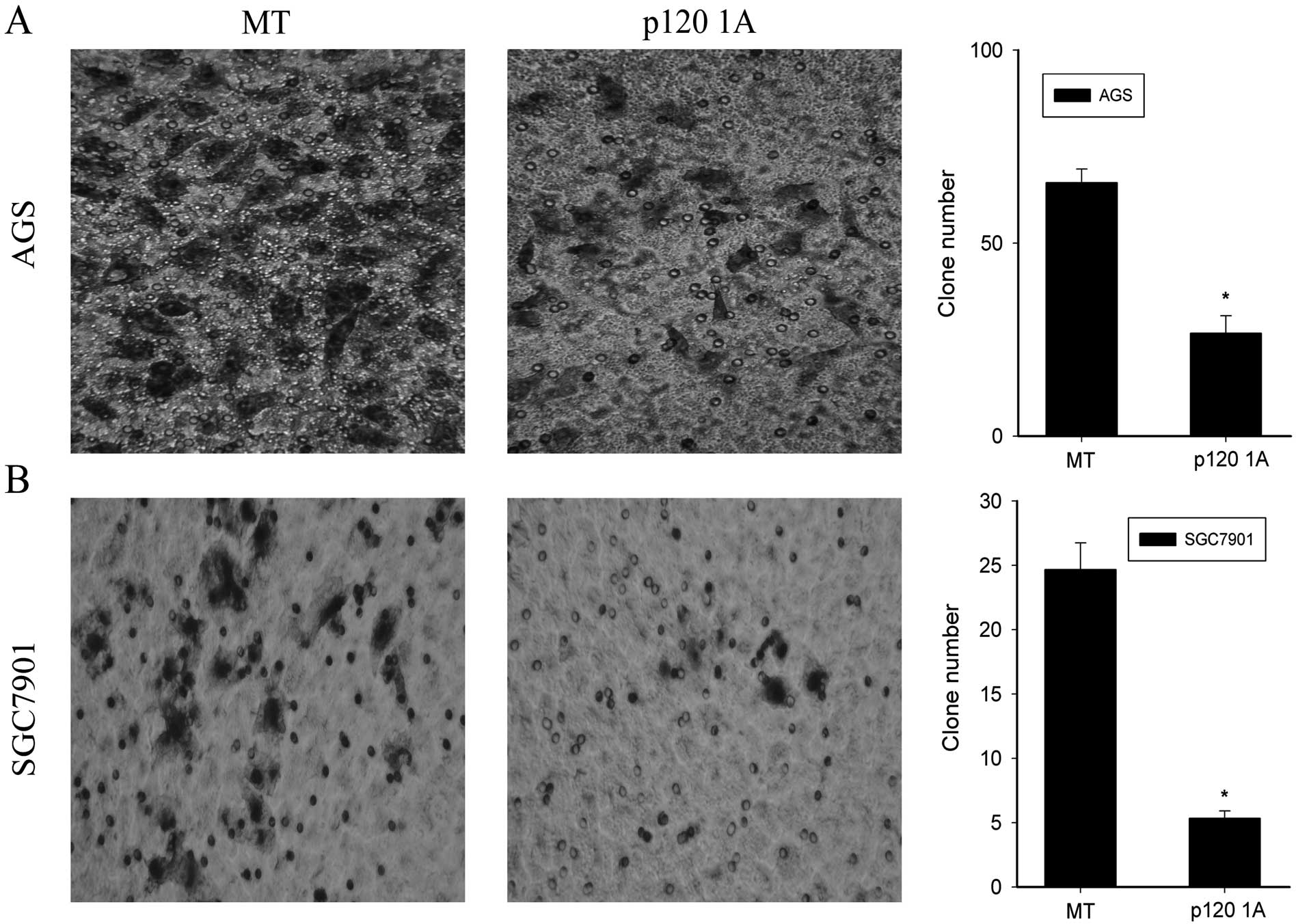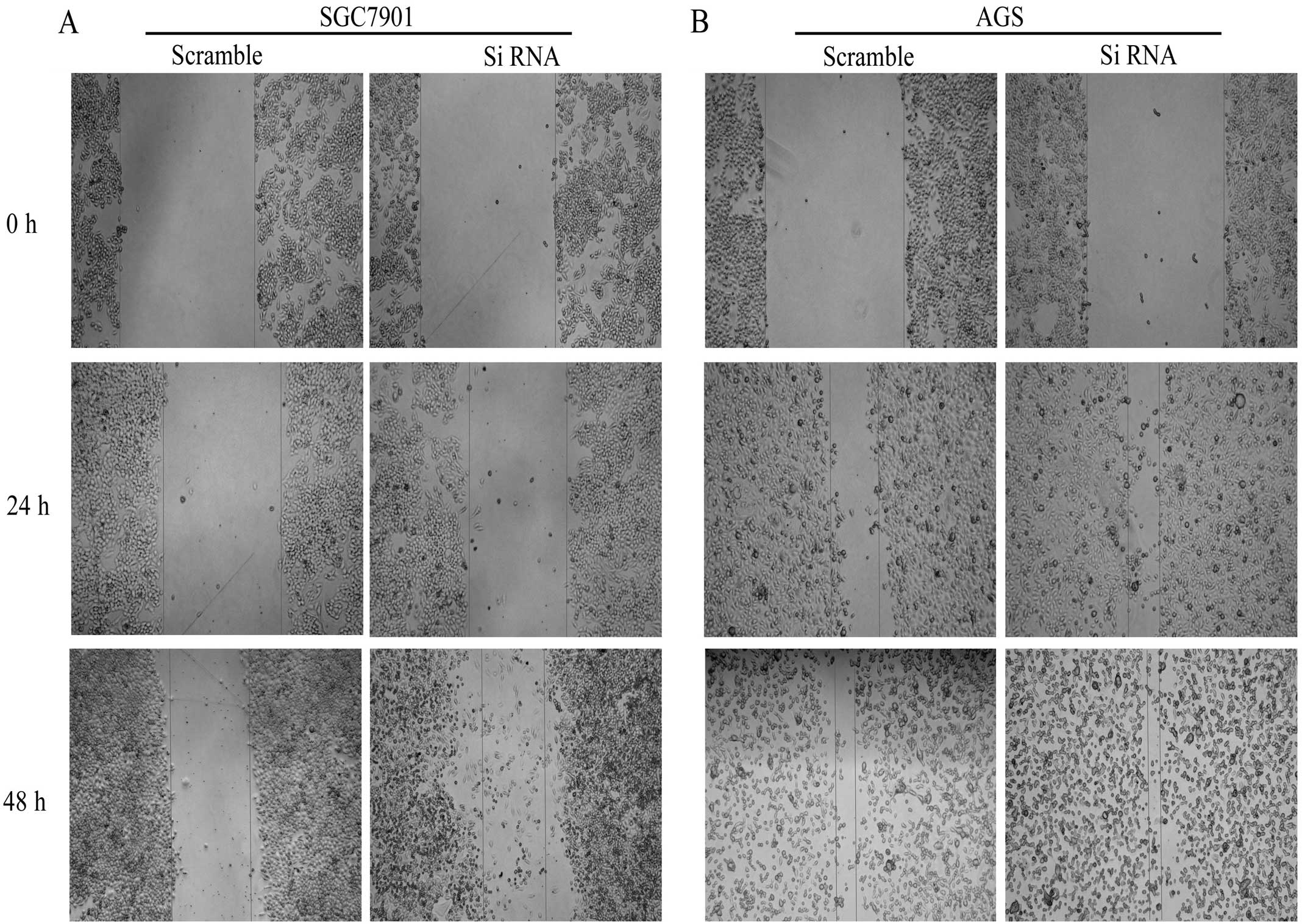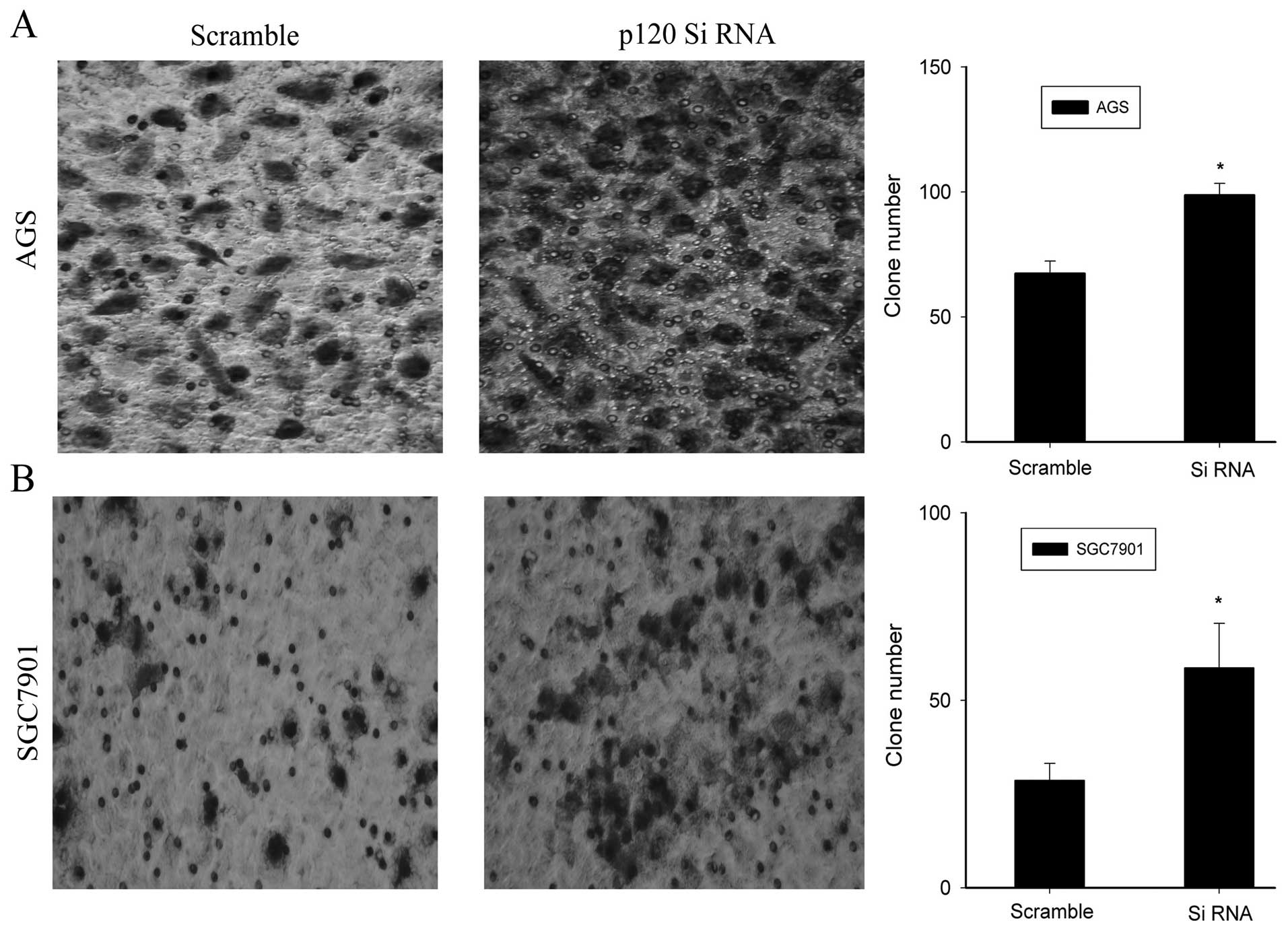|
1
|
Jemal A, Siegel R, Ward E, Murray T, Xu J
and Thun MJ: Cancer statistics, 2007. CA Cancer J Clin. 57:43–66.
2007. View Article : Google Scholar : PubMed/NCBI
|
|
2
|
Parkin DM, Bray F, Ferlay J and Pisani P:
Global cancer statistics, 2002. CA Cancer J Clin. 55:74–108. 2005.
View Article : Google Scholar : PubMed/NCBI
|
|
3
|
Gómez del Pulgar T, Bandrés E, Espina C,
Valdés-Mora F, Pérez-Palacios R, García-Amigot F, García-Foncillas
J and Lacal JC: Differential expression of Rac1 identifies its
target genes and its contribution to progression of colorectal
cancer. Int J Biochem Cell Biol. 39:2289–2302. 2007. View Article : Google Scholar : PubMed/NCBI
|
|
4
|
Rathinam R, Berrier A and Alahari SK: Role
of Rho GTPases and their regulators in cancer progression. Front
Biosci. 16:2561–2571. 2011. View
Article : Google Scholar
|
|
5
|
Kumar R and Vadlamudi RK: Emerging
functions of p21-activated kinases in human cancer cells. J Cell
Physiol. 193:133–144. 2002. View Article : Google Scholar : PubMed/NCBI
|
|
6
|
Ong CC, Jubb AM, Haverty PM, Zhou W, Tran
V, Truong T, Turley H, O'Brien T, Vucic D, Harris AL, et al:
Targeting p21-activated kinase 1 (PAK1) to induce apoptosis of
tumor cells. Proc Natl Acad Sci USA. 108:7177–7182. 2011.
View Article : Google Scholar : PubMed/NCBI
|
|
7
|
Vadlamudi RK, Adam L, Wang RA, Mandal M,
Nguyen D, Sahin A, Chernoff J, Hung MC and Kumar R: Regulatable
expression of p21-activated kinase-1 promotes anchorage-independent
growth and abnormal organization of mitotic spindles in human
epithelial breast cancer cells. J Biol Chem. 275:36238–36244. 2000.
View Article : Google Scholar : PubMed/NCBI
|
|
8
|
Wang J-X, Zhou Y-N, Zou SJ, Ren TW and
Zhang ZY: Correlations of p21-activated kinase 1 expression to
clinicopathological features of gastric carcinoma and patients'
prognosis. Chin J Cancer. 29:649–654. 2010. View Article : Google Scholar : PubMed/NCBI
|
|
9
|
Wu YJ, Tang Y, Li ZF, Li Z, Zhao Y, Wu ZJ
and Su Q: Expression and significance of Rac1, Pak1 and Rock1 in
gastric carcinoma. Asia Pac J Clin Oncol. 10:e33–e39. 2014.
View Article : Google Scholar :
|
|
10
|
Reynolds AB, Roesel DJ, Kanner SB and
Parsons JT: Transformation-specific tyrosine phosphorylation of a
novel cellular protein in chicken cells expressing oncogenic
variants of the avian cellular src gene. Mol Cell Biol. 9:629–638.
1989.PubMed/NCBI
|
|
11
|
Shibamoto S, Hayakawa M, Takeuchi K, Hori
T, Miyazawa K, Kitamura N, Johnson KR, Wheelock MJ, Matsuyoshi N,
Takeichi M, et al: Association of p120, a tyrosine kinase
substrate, with E-cadherin/catenin complexes. J Cell Biol.
128:949–957. 1995. View Article : Google Scholar : PubMed/NCBI
|
|
12
|
Ferber A, Yaen C, Sarmiento E and Martinez
J: An octapeptide in the juxtamembrane domain of VE-cadherin is
important for p120ctn binding and cell proliferation. Exp Cell Res.
274:35–44. 2002. View Article : Google Scholar : PubMed/NCBI
|
|
13
|
Ishiyama N, Lee SH, Liu S, Li GY, Smith
MJ, Reichardt LF and Ikura M: Dynamic and static interactions
between p120 catenin and E-cadherin regulate the stability of
cell-cell adhesion. Cell. 141:117–128. 2010. View Article : Google Scholar : PubMed/NCBI
|
|
14
|
Thoreson MA and Reynolds AB: Altered
expression of the catenin p120 in human cancer: Implications for
tumor progression. Differentiation. 70:583–589. 2002. View Article : Google Scholar : PubMed/NCBI
|
|
15
|
Anastasiadis PZ, Moon SY, Thoreson MA,
Mariner DJ, Crawford HC, Zheng Y and Reynolds AB: Inhibition of
RhoA by p120 catenin. Nat Cell Biol. 2:637–644. 2000. View Article : Google Scholar : PubMed/NCBI
|
|
16
|
Noren NK, Liu BP, Burridge K and Kreft B:
p120 catenin regulates the actin cytoskeleton via Rho family
GTPases. J Cell Biol. 150:567–580. 2000. View Article : Google Scholar : PubMed/NCBI
|
|
17
|
Grosheva I, Shtutman M, Elbaum M and
Bershadsky AD: p120 catenin affects cell motility via modulation of
activity of Rho-family GTPases: A link between cell-cell contact
formation and regulation of cell locomotion. J Cell Sci.
114:695–707. 2001.PubMed/NCBI
|
|
18
|
Wong LE, Reynolds AB, Dissanayaka NT and
Minden A: p120-catenin is a binding partner and substrate for group
B Pak kinases. J Cell Biochem. 110:1244–1254. 2010. View Article : Google Scholar : PubMed/NCBI
|
|
19
|
Jaffer ZM and Chernoff J: p21-activated
kinases: Three more join the Pak. Int J Biochem Cell Biol.
34:713–717. 2002. View Article : Google Scholar : PubMed/NCBI
|
|
20
|
Parrini MC, Lei M, Harrison SC and Mayer
BJ: Pak1 kinase homodimers are autoinhibited in trans and
dissociated upon activation by Cdc42 and Rac1. Mol Cell. 9:73–83.
2002. View Article : Google Scholar : PubMed/NCBI
|
|
21
|
Zhang X and Wang E: Impact of p120-catenin
isforms 1A and 3A on epithelial mesenchymal transition of lung
cancer cells expression e-cadherin in different subcellular
locations. PLoS One. 9:880642014. View Article : Google Scholar
|
|
22
|
Tucker TA, Varga K, Bebok Z, Zsembery A,
McCarty NA, Collawn JF, Schwiebert EM and Schwiebert LM: Transient
transfection of polarized epithelial monolayers with CFTR and
reporter genes using efficacious lipids. Am J Physiol Cell Physiol.
284:C791–C804. 2003. View Article : Google Scholar
|
|
23
|
Sun T, Tian H, Feng YG, Zhu YQ and Zhang
WQ: Egr-1 promotes cell proliferation and invasion by increasing
β-catenin expression in gastric cancer. Dig Dis Sci. 58:423–430.
2013.
|
|
24
|
Jiang G, Wang Y, Dai S, Liu Y, Stoecker M
and Wang E and Wang E: P120-catenin isoforms 1 and 3 regulate
proliferation and cell cycle of lung cancer cells via β-catenin and
Kaiso respectively. PLoS One. 7:e303032012. View Article : Google Scholar
|
|
25
|
Zhang ZY and Ge HY: Micrometastasis in
gastric cancer. Cancer Lett. 336:34–45. 2013. View Article : Google Scholar : PubMed/NCBI
|
|
26
|
Tang Y, Chen Z, Ambrose D, Liu J, Gibbs
JB, Chernoff J and Field J: Kinase-deficient Pak1 mutants inhibit
Ras transformation of Rat-1 fibroblasts. Mol Cell Biol.
17:4454–4464. 1997.PubMed/NCBI
|
|
27
|
Qu J, Cammarano MS, Shi Q, Ha KC, de
Lanerolle P and Minden A: Activated PAK4 regulates cell adhesion
and anchorage-independent growth. Mol Cell Biol. 21:3523–3533.
2001. View Article : Google Scholar : PubMed/NCBI
|
|
28
|
Thoreson MA, Anastasiadis PZ, Daniel JM,
Ireton RC, Wheelock MJ, Johnson KR, Hummingbird DK and Reynolds AB:
Selective uncoupling of p120ctn from E-cadherin disrupts
strong adhesion. J Cell Biol. 148:189–202. 2000. View Article : Google Scholar : PubMed/NCBI
|
|
29
|
Zhang Y, Zhao Y, Jiang G, Zhang X, Zhao H,
Wu J, Xu K and Wang E: Impact of p120-catenin isoforms 1A and 3A on
epithelial mesenchymal transition of lung cancer cells expressing
E-cadherin in different subcellular locations. PLoS One.
9:e880642014. View Article : Google Scholar : PubMed/NCBI
|
|
30
|
Liu Y, Chen N, Cui X, Zheng X, Deng L,
Price S, Karantza V and Minden A: The protein kinase Pak4 disrupts
mammary acina architecture and promotes mammary tumorigenesis.
Oncogene. 29:883–894. 2010. View Article : Google Scholar
|















